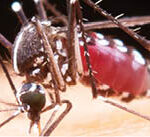Before the onset of the COVID-19 pandemic, achievements in the administration of life-saving vaccines that could prevent childhood killer disease in Nigeria and globally appeared imperilled. Misinformation about vaccines was pervasive. Vaccine hesitancy, a motivational state of being conflicted about, or opposed to, vaccination, was a top concern. And vaccine-preventable diseases, such as measles, re-emerged following decades of successful control.
Since the arrival of COVID-19, disruptions to childhood vaccine delivery have further jeopardised routine immunisation efforts. Health system was affected, most especially at the primary healthcare level where immunisation activities were grossly disrupted. Due to the lockdown, outreach activities were suspended, vaccine supply chains both at national and state levels were interrupted. The public patronage for routine immunisation was at the lowest ebb. Monitoring and supervision of immunisation sessions both at the fixed posts and outreach centres were upended due to the fear of COVID-19 by the health workers.
However, the effects of the pandemic on routine immunisation have the potential to extend beyond disruptions in vaccine delivery. What will be the legacy of the COVID-19 pandemic for routine immunisation in Nigeria? In this viewpoint, we discuss how the pandemic might affect trust, risk perception, mandates, and health equity in the context of childhood vaccination. We then propose several recommendations to mitigate potential negative effects and help sustain confidence in childhood vaccines.
Trust is essential for confidence in and uptake of childhood vaccines. The development, approval, and dissemination of COVID-19 vaccines introduced Nigerians, many for the first time, to the processes that are designed to ensure the safety and effectiveness of vaccines. However, the realisation that these processes might be vulnerable to external pressures generated concerns among Nigerians that vaccines would be rushed without adequate safety measures. This distrust borne from perceptions of external influences might have profound long-term repercussions. One potential repercussion is the erosion of support for vaccination programmes in Nigeria more generally. Additionally, the current distrust in institutions central to the vaccine enterprise could extend to affect the public’s trust in science and clinicians more generally, further undermining confidence in childhood vaccines.
Buhari’s legacy on elections and lessons for President Tinubu
IPAC constitutes 47-man c’ttee to review manifesto, SDGs implementation
The low prevalence of vaccine-preventable diseases in Nigeria in the past has been an important driver of parental refusal and delay of vaccines for their children. Concerns about the risks of vaccines, outweighing concerns about the risks of diseases, have been common. Given the strong evidence supporting a relationship between risk perception and vaccination behaviour, it is possible that the pandemic could change a parent’s perception of their child’s susceptibility to disease and result in increased vaccine uptake. However, data on the exact impact of the pandemic on risk perception and vaccine attitudes in Nigeria are limited and require further research.
Health equity has been a longstanding challenge in Nigeria, and the pandemic has further exposed the deep-rooted disparities in healthcare. Poor and rural communities with historically marginalised populations have been disproportionately affected by vaccine-preventable illnesses. Investing in research and partnerships that address healthcare inequities and explicitly acknowledge the experiences of marginalised communities can help restore trust and improve vaccine coverage.
To promote a positive legacy of the COVID-19 pandemic on childhood vaccination in Nigeria, several recommendations can be considered. First, it is crucial to rebuild trust in the vaccine enterprise by ensuring transparent and rigorous processes for vaccine development and approval. Open communication and engagement with the public are essential to address concerns and counter misinformation. Second, efforts should focus on enhancing risk perception by effectively communicating the benefits and risks of vaccines, particularly in the context of COVID-19. Third, stakeholders, including public health practitioners, community leaders, and parents, need to intensify their efforts to engage with communities, promote civil discourse, and combat misinformation.
This is because decreased vaccination coverage for vaccine-preventable diseases could cause parallel outbreaks with COVID-19 and further exacerbate the strain on health systems struggling to end the acute phase of this pandemic. Therefore, the government of Nigeria must take deliberate steps to strike a balance between emphasis vaccination and the imperative of uninterrupted social service. In this way, it must remain committed to a timely vaccination programme, most especially to build herd immunity and protect healthcare workers through provision of personal protective equipment and good disinfecting practices for vaccination clinics.
The COVID-19 pandemic has brought significant challenges to vaccination efforts in Nigeria. However, by recognising these challenges and implementing targeted strategies, Nigeria can overcome the hurdles and strengthen its vaccination programmes. Ensuring trust, addressing risk perception and promoting health equity are vital steps towards a future where vaccination is trusted, valued, and accessible, leading to improved public health outcomes for Nigerian children.
Victor Okeke works for the Centre for Social Justice (CSJ), Nigeria

 Join Daily Trust WhatsApp Community For Quick Access To News and Happenings Around You.
Join Daily Trust WhatsApp Community For Quick Access To News and Happenings Around You.


